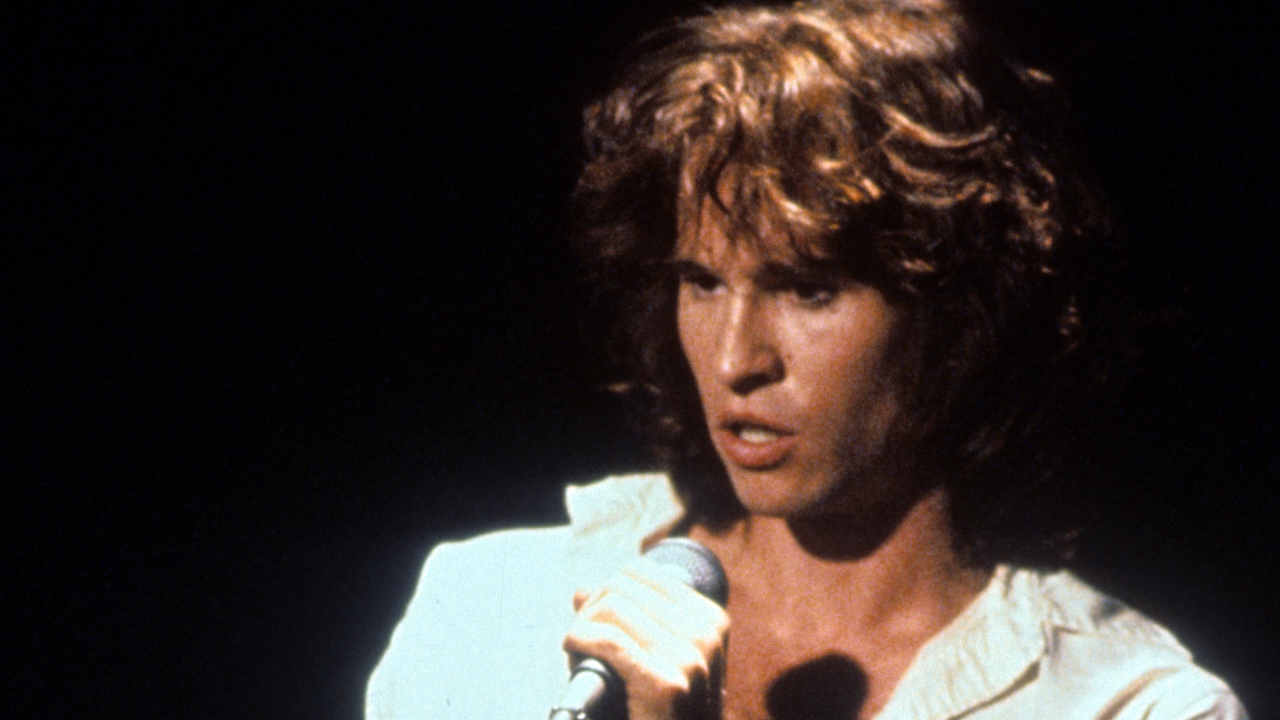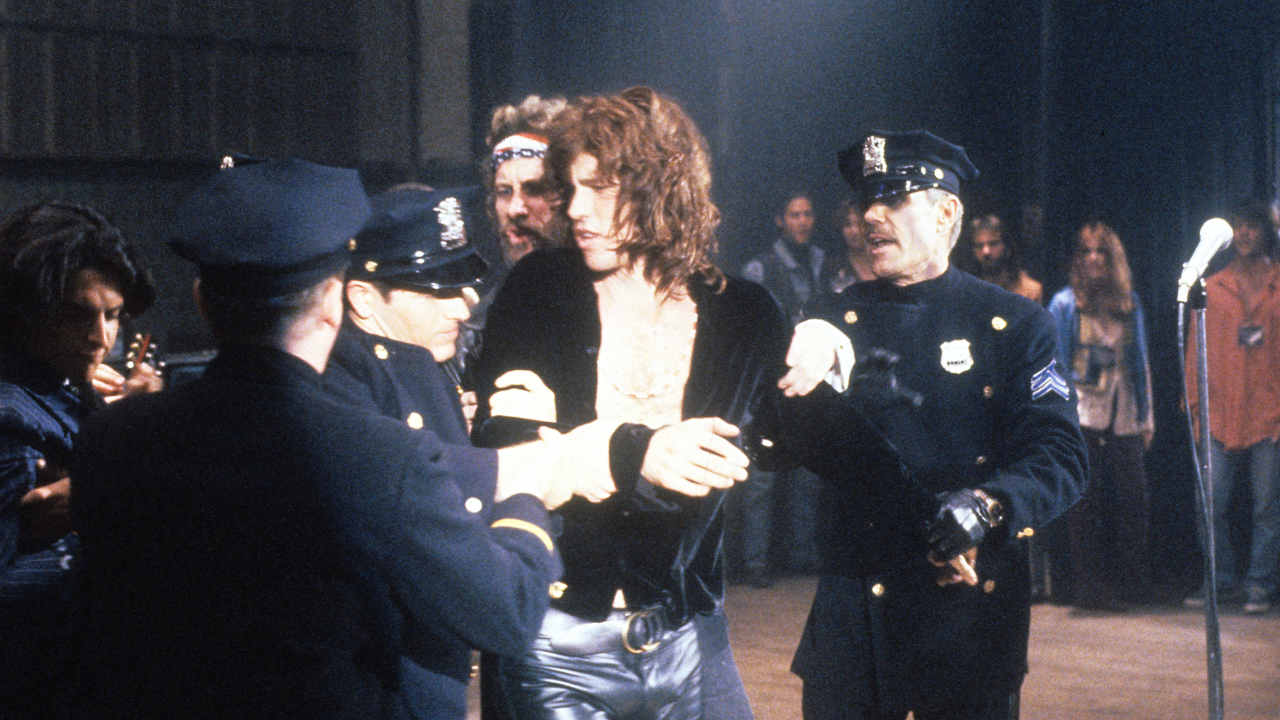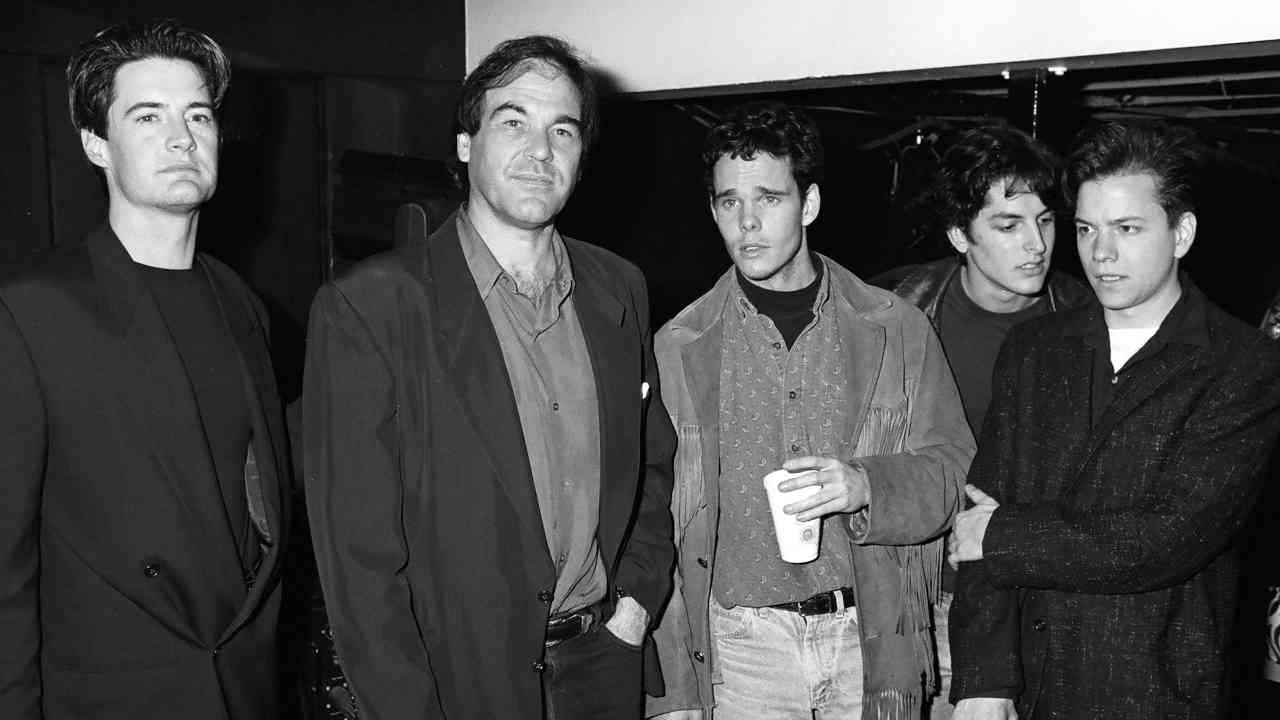
Few bands have left as indelible a mark on rock as The Doors. Fusing poetic lyricism with enigmatic melodies, their music was a dark reflection of the psychedelic era, captivating audiences with an immersive blend of rock, blues, performance art and poetry.
It was inevitable that Hollywood would capitalise on the mystique of this legendary band, although it took 20 years after singer Jim Morrison’s death for someone to do it. But the movie that eventually emerged, Oliver Stone’s The Doors, would stand as arguably the most influential biopic ever made, laying the template for everything that followed.
Released in March, 1991, The Doors chronicles the band’s tumultuous journey from obscurity to infamy, capturing both The Doors' raw energy and Morrison's potent magnetism — not to mention all of the sex and drugs that rock gods of that era enjoyed. Morrison was a visionary with a high intellect, a shamanistic charisma and a rapacious appetite for drugs and alcohol that often led to violence, antisocial outbursts and ultimately his death at age 27. Stone – who won the Best Director Oscar for 1986’s Platoon and 1989’s Born On The Fourth Of July – introduced an exhilarating new method of storytelling, blending masterful performances with jaw-dropping cinematography, druggy fantasy sequences and the dead-on recreation of not just a scene but of an entire era.
The power of The Doors lay in Val Kilmer’s unflinching portrayal of Morrison, who emerged as the embodiment of the band's mystical allure. His haunting performance was a masterclass in Method-acting that saw the 31-year-old actor reverentially channel the hubris, darkness and creative fervour that defined Morrison's persona. Considering that Morrison appears in nearly all of the scenes, this was the critical choice around which the rest of the movie would be arranged. Kilmer sang 70 percent of his songs, with the production team threading his vocals into Morrison’s original tracks so seamlessly that differentiating between the two is all but impossible. And Kilmer looked and spoke exactly like Morrison, assuming the character so thoroughly that it’s difficult to seriously consider anyone else, including Tom Cruise, John Travolta or even Johnny Depp – all of whom were reportedly considered – in the role.

In Stone’s hands, Morrison emerges by turns charismatic, otherworldly, insufferable and hopelessly full of shit – a heady blend of personality traits that we know will lead to his complete self-destruction and to massive collateral damage throughout the lives of his band and anybody close to him.
The film's authentic reimagining of iconic moments – such as Morrison’s 1967 arrest for inciting a riot in New Haven Connecticut or his even-more-infamous 1969 arrest in Miami for allegedly exposing himself during a show – are vividly recreated with slow-building dread. Rather than focus on Morrison’s climactic actions, Stone begins these scenes from far back, allowing tensions to gradually rise to a boiling point. When the chaos finally erupts, it feels cathartic.
Nor did Stone whitewash Morrison’s harrowing descent into alcoholism and self-destruction. Kilmer’s performance is grisly and at times hard to watch, as his character morphs from cocky sex symbol and would be poet to a violent, insufferable addict who takes out his hostilities and pettiness on those who care for him the most. Many, including Stone, felt that Kilmer’s performance deserved an Oscar award but he was snubbed by the Academy. In 2021, Stone told the Hollywood Reporter: “I do feel he was slighted. It was a once-in-a-lifetime kind of performance.“
No biopic is without its detractors and The Doors was no exception, particularly among the band’s surviving members. Doors keyboardist and co-founder Ray Manzarek was among the film’s most prominent critics, citing myriad key factual errors.
“All you see is Jim as a drunken hedonist,” said Manzarek. “The tragedy is that fame consumed him. But that wasn’t Jim’s message. He was intelligent. He was loving. He was a good man who believed in freedom and in questioning authority. But you’d never know that from seeing this film.”
Doors drummer John Densmore agreed, stating. "Oliver is interested in the self-destructive, creative, brooding personality – one not unlike his own – so he's focusing on that aspect of Jim. We were always complaining that the script was too dark..."
These critiques shine a light on a persistent challenge faced by music biopics - striking a balance between dramatic storytelling and historical accuracy. This tension between a director’s artistic expression and factual fidelity has fueled debates within the genre, but it is also a testament to the enduring impact of The Doors.

For Stone, the goal was to transcend linear storytelling and to instead create a full sensory experience. The film’s stylized visuals, courtesy of cinematographer Robert Richardson, managed to recreate the hallucinogenic landscapes of the '60s with a hypnotic intensity.
“We had to go back into the past,” said the director. “We had everyone dressed in period, which was very expensive. We were also taking chances that we normally wouldn’t. We were growing in our boldness. We wanted to challenge all the ideas. We had no rules, no limits, no laws.”
Unburdened by fact or history, Stone inserted fictional moments like Morrison angrily throwing a television at his bandmates as well as stitching in hallucinatory drug montages or the repeating motif of an Indigenous American appearing as Morrison’s spiritual guide throughout the film.
The band – played by Kyle MacLachlan (Manzarek), Kevin Dillon (Densmore) and Frank Whaley (guitarist Robby Krieger) – emerge as wooden archetypes, with Stone relegating them to the role of impotent witnesses to Morrison’s cataclysmic demise rather than as the vanguard musicians who created the towering soundscapes for the singer’s lyrics. Likewise, Meg Ryan’s performance as Morrison’s long-term partner, Pamela Courson, is unable to overcome the disappointing lack of depth written into that character.
Yet Stone’s recreation of the band’s live performances is nothing short of revelatory; one is left feeling as if they had just attended an actual Doors show at the pinnacle of their fame. Two weeks after the film’s release, Manzarek hailed these scenes as “brilliantly-filmed although over-amped and sensationalistic.” As a testament to its impact on a new generation of fans, The Doors (Soundtrack) achieved platinum certification in 2001, even though in 1980, the band had already released a Greatest Hits collection.
From the novel approach to storytelling to its bold advances into the creative possibilities of cinematography, The Doors smashed old ideas about depicting the lives of well-known icons. It was never intended as a documentary or as canonical fact; this was Stone the artist, channelling the transgressive spirit of Morrison the artist, to convey something bold and unique.
“We did things film-wise that hadn’t been done since the 60s. Just have some fun with it,” said Stone. “I gave it my best shot and if it ain’t exactly Jim, it’s an impression and a reflection of a time that I would have liked to have seen.”
The influence of The Doors is palpable in many more recent rock biopics. From Rami Malek’s transfixing portrayal of Freddie Mercury in Bohemian Rhapsody to the jarring surrealism of the Bob Dylan biopic, I’m Not There to the ambitious performance recreations of Baz Luhrmann’s Elvis, echoes of The Doors ring loudly.
Speaking on The Doors’ 30th anniversary, Stone said: ”I wish we had made the money Bohemian Rhapsody had made. Look, every film has to be marketable. The Doors was not. We just made an outlaw film because [producer] Mario Kassar was out of his mind. He was willing to gamble. He didn’t give a shit about all that stuff. He was a pirate. He made films against the grain.”
Stone was flat-out wrong about the marketability of his film. Riding on the strengths of his pedigree and Kilmer’s tour-de-force performance, moviegoers pumped over $9 million into the coffers on opening weekend alone. The film would go on to top $35 million in the US. It also introduced The Doors’ music and Morrison himself to an entirely new generation, making the singer a superstar once more 20 years after his death.
Despite the criticisms regarding the film’s historical accuracy or the unflinching depravity of Morrison’s portrayal, The Doors’ influence cannot be denied. It brought the band’s story to a new generation, ignited a spark of creative inspiration among filmmakers and rekindled interest in the band’s music. Over three decades on, The Doors stands tall as a milestone in the annals of music biopics and a beacon of creative possibility to both filmmakers and musicians alike.







